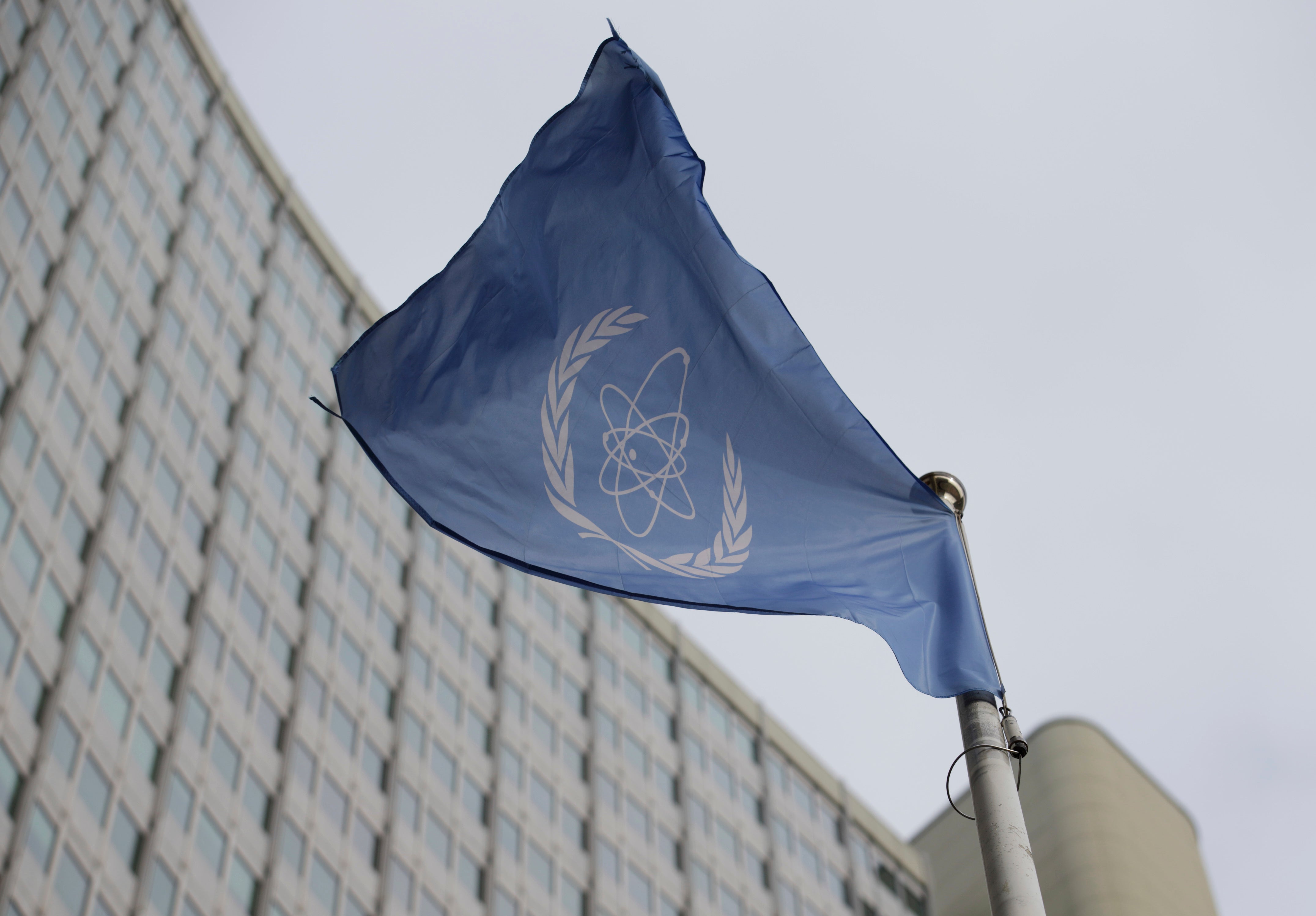Iran has increased its stockpile of uranium enriched to near weapons-grade levels, UN says
The U.N. nuclear watchdog says Iran has further increased its stockpile of uranium enriched to near weapons-grade levels in defiance of international demands

Your support helps us to tell the story
From reproductive rights to climate change to Big Tech, The Independent is on the ground when the story is developing. Whether it's investigating the financials of Elon Musk's pro-Trump PAC or producing our latest documentary, 'The A Word', which shines a light on the American women fighting for reproductive rights, we know how important it is to parse out the facts from the messaging.
At such a critical moment in US history, we need reporters on the ground. Your donation allows us to keep sending journalists to speak to both sides of the story.
The Independent is trusted by Americans across the entire political spectrum. And unlike many other quality news outlets, we choose not to lock Americans out of our reporting and analysis with paywalls. We believe quality journalism should be available to everyone, paid for by those who can afford it.
Your support makes all the difference.Iran has further increased its stockpile of uranium enriched to near weapons-grade levels in defiance of international demands, according to a confidential report by the United Nations’ nuclear watchdog seen Tuesday by The Associated Press .
The report by the International Atomic Energy Agency said that as of Oct. 26, Iran has 182.3 kilograms (401.9 pounds) of uranium enriched up to 60%, an increase of 17.6 kilograms (38.8 pounds) since the last report in August.
Uranium enriched at 60% purity is just a short, technical step away from weapons-grade levels of 90%.
The IAEA also estimated in its quarterly report that as of Oct. 26, Iran’s overall stockpile of enriched uranium stands at 6,604.4 kilograms (14,560 pounds), which represents an increase of 852.6 kilograms (1,879.6 pounds) since the last report in August. Under the IAEA’s definition, around 42 kilograms (92.5 pounds) of uranium enriched to 60% purity is the amount at which creating one atomic weapon is theoretically possible — if the material is enriched further, to 90%.
Iran has maintained its nuclear program is for peaceful purposes only, but the IAEA chief, Rafael Mariano Grossi, has previously warned that Tehran has enough uranium enriched to near-weapons-grade levels to make “several” nuclear bombs if it chose to do so. He has acknowledged the U.N. agency cannot guarantee that none of Iran’s centrifuges may have been peeled away for clandestine enrichment.
The IAEA also reported that Iran has failed to take concrete steps as of now to improve cooperation, despite pleas by Grossi, who visited Iran last week for talks with Mohammad Eslami of the Atomic Energy Organization of Iran, Iranian Foreign Minister Abbas Araghchi and Iran’s reformist President Masoud Pezeshkian.
However, the IAEA said in its report that during the meetings, “the possibility of Iran not further expanding its stockpile of uranium enriched up to 60% U-235 was discussed, including technical verification measures necessary for the Agency to confirm this, if implemented.”
The report said that one day after director general of the International Atomic Energy Agency Rafael Mariano Grossi left Iran, on Nov 16, IAEA inspectors verified that “Iran had begun implementation of preparatory measures aimed at stopping the increase of its stockpile of uranium enriched up to 60 % U-235” at its underground nuclear sites in Fordow and Natanz.
Tuesday’s confidential report also said that during Grossi’s visit to Iran on Nov. 14, “Iran agreed to respond to the Agency’s concerns related to Iran’s withdrawal of the designation of several experienced Agency inspectors by considering the acceptance of the designation of four additional experienced inspectors.”
In September 2023, Iran barred some of the Vienna-based agency’s most experienced inspectors.
The report also said there was no progress thus far in reinstalling more monitoring equipment, including cameras, removed in June 2022, which also has “detrimental implications for the Agency’s ability to provide assurances of the peaceful nature of Iran’s nuclear program."
Since then, the only recorded data is that of IAEA cameras installed at a centrifuge workshop in Isfahan in May 2023 — although Iran has not provided the IAEA with access to this data and inspectors have not been able to service the cameras.
The reports come ahead of this week’s regular IAEA Board of Governors meeting in Vienna. Western countries have been considering a resolution censuring Iran for its failure to improve cooperation with the agency.
Last week, Eslami warned that Iran could retaliate if challenged at the upcoming IAEA board meeting. Grossi acknowledged some nations were considering taking action against Iran.
A senior diplomat said it is possible that the commitments made by Iran during the IAEA’s chief visit may not stand in case a resolution is passed.